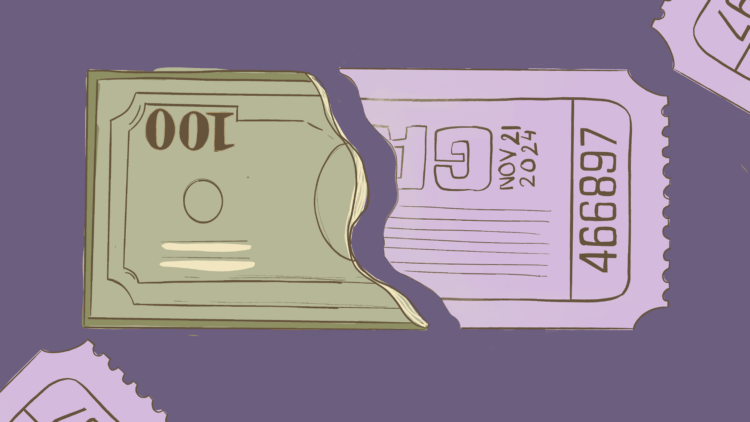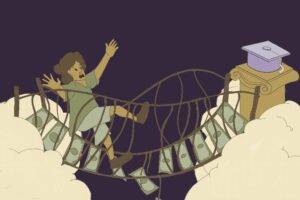
The text of this article was read aloud and recorded for your greater accessibility and viewing pleasure:
Audio voiced by Kit Montgomery and recorded and edited by Gren Bee.
Last year, Square Roots Festival, a once-free street festival in Chicago, had to ask its attendees for donations because of the rising price of fees associated with putting on a music fest.
In the last two years, three festivals have left Chicago. Starting Last year with The Silver Room Block Party, initially a free single-day event that turned into a ticketed two-day event, which came to a close after 19 years due to the cost of production for the event. The next was Hyde Park Summer Fest, which announced it would be shutting down after nine years following this year’s fest. Organizers cited rising costs for running the two-day event as the main reason for its closure. The last, and most significant, was the Pitchfork Music Fest, which hasn’t announced why it was leaving, or where it was going .
On the organization side, the price of organizing a music festival is increasing, especially in the Post-pandemic economy.
Outside of Chicago, the prices for music festival tickets have increased across the United States. Over the last decade ticket prices have increased at a rate higher than inflation. The daily general admission prices have increased by 55 percent since 2014. Inflation has raised 33.34 percent since 2014, $1 in 2014 is worth $1.33 today.
Lollapalooza, Chicago’s most popular music fest, has also experienced ticket price gouging. Lollapalooza ticket price for three-day general admission passes in 2024 was $409 (before taxes. 10 years ago the ticket price for three-day General Admission was $250. In 2005, Lollapalooza’s first year in Chicago, the ticket price for two-day GA passes (as the festival started with two days) was $85 if you bought from the initial sale, as it got closer to the festival it was increased to $115. Despite the ticket price increasing well past the cost of inflation (which would have made passes $140.70), the fest saw record attendance this year.
Another major festival in Chicago, the Windy City Smokeout, a country BBQ themed festival, also saw a price rise that outpaced inflation. This year’s ticket price for a four-day GA pass was $255.95. In 2013 (the year the festival debuted) and 2014, Windy City Smokeout’s ticket prices were $75.
Pitchfork Music Festival’s ticket prices this year were $219 for three-day GA passes. A decade ago, three-day GA passes were $130. In the fest’s first year (2006), two-day GA prices were $25.
North Coast Music Festival, one of the largest EDM music festivals in the U.S., had the same issues with the rise in ticket prices. This year’s three-day GA passes were $232. In 2014, three- day GA passes were $149. In 2010, the fest’s first year, three-day GA prices started at $75.
Riot Fest, one of Chicago’s largest independently run festival, also outpaced inflation with its ticket prices. This year’s three-day GA tickets were $249.99. In 2014, three-day GA passes were $149.98. In 2005, when the fest first started, three-day tickets (each sold separately) were $82.50 ($27.50 each).
This summer alone Chicago had over 4o music festivals. As the third largest city in the U.S., and one of the most central cities, Chicago is ripe with fests of all kinds. But the tides are changing.
On Nov. 12, 2024, Pitchfork Music Fest announced it would be leaving Chicago after 19 years. Pitchfork’s official announcement said, “To our Chicago Festival community:
As the music festival landscape continues to evolve rapidly, we have made the difficult decision not to host Pitchfork Music Festival in Chicago in 2025.”
Earlier this year, Riot Fest announced it would be moving from Douglass Park, in the city, to Seat Geek Stadium just outside the city, before moving back to Douglass Park one month before the fest. Riot Fest cited Chicago’s Park district’s new tax and denial of the fests’ proposal as their initial reason for leaving Douglass Park.
The price of music festivals is higher than ever for attendees and organizers alike. Even outside of tickets, music festivals are costly events for consumers, with all kinds of unexpected expenses, like travel, lodging, and food (which is often at a high markup).







